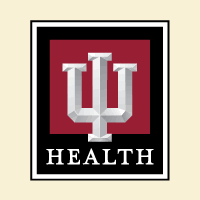
One-third of Americans suffer from a sleep disorder. The quality of your sleep can harm your health long-term. A potentially serious sleep disorder is sleep apnea in which breathing repeatedly stops and starts. If you snore loudly and feel tired even after a full night’s sleep, you might have sleep apnea.
“What some people think of as an average night’s sleep and daytime sleepiness can actually be a condition with major health consequences,” explains Kareena Wells, RRT, cardiopulmonary and sleep lab manager. “If untreated, sleep disorders can result in heart disease, type 2 diabetes, weight gain and stroke.”
Sleep disorders often go untreated because the conditions are difficult to diagnose in a traditional visit at a provider’s office. The new Sleep Lab study can help solve this problem. The treatment of a sleep disorder can mean a drastic improvement in the quality of life.
“Opening the new Sleep Lab in Frankfort brings an important service to our community at a convenient location,” shares Kelly Braverman, president of IU Health Frankfort Hospital. “Sleep disorders are more common – and more dangerous – than people realize.”
At the Sleep Lab, special monitors measure brain waves, heart rate, leg and arm movements, breathing and oxygen levels. Set up like a nice, private hotel room, patients sleep like they usually do but with special sensors to monitor the body. The Sleep Lab rooms are designed to provide patients the utmost in comfort and privacy during their stay. A sleep medicine physician analyzes the information gathered during the sleep study to determine if the patient has a sleep disorder.
Wells encourages those experiencing loud snoring, trouble falling asleep, pausing during sleep, excessive daytime sleepiness, awakening with a dry mouth, morning headaches and other sleep disorder symptoms to talk to their primary care provider, who can initiate a sleep study. Common sleep disorders include obstructive sleep apnea, restless leg syndrome, narcolepsy, sleepwalking and insomnia.
“Treatment can make an incredible difference in your energy and ability to enjoy your day,” Wells says.
Individualized treatment plans may include changes in diet and exercise, education on sleep hygiene or a breathing machine like a continuous positive airway pressure (CPAP) device.
